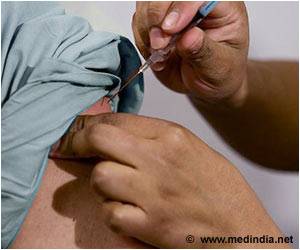
‘Cryptococcal meningitis mortality rates dropped significantly after 1-week induction treatment comprising daily infusion of amphotericin B and oral flucytosine followed by two weeks of fluconazole and flucytosine.’
Tweet it Now
Cryptococcal meningitis
is a serious fungal infection frequent in immunosuppressed people, in particular AIDS patients. Despite increased use globally of antiretroviral treatment of people living with HIV, cryptococcal disease has not declined in incidence and accounts for over 180 000 deaths worldwide every year. The ACTA trial in 721 HIV-infected patients with cryptococcal meningitis compared three 1- or 2-week induction treatments of this fungal infection, followed by 8- to 9-week consolidation therapy. The most effective was 1-week induction treatment comprising daily infusion of amphotericin B and oral flucytosine followed by two weeks of fluconazole and flucytosine. Ten weeks after treatment initiation, mortality had dropped significantly compared with the therapeutic regimen recommended hitherto in several countries. These results are reported in the New England Journal of Medicine.
The new therapeutic regimens highlighted by the ACTA trial could potentially save over 80 000 lives a year. In the light of these findings, the WHO has just changed its guidelines for the management of cryptococcal disease and recommends 1-week induction treatment based on amphotericin B and flucytosine. If amphotericin is unavailable, high-dose fluconazole combined with oral flucytosine should be proposed. Olivier Lortholary and Charles Kouanfack, the investigators for the ANRS Cameroon site concluded that "These results will have a major impact on AIDS-related mortality in Africa. They show that flucytosine should rapidly be made available in resource-limited countries."
Source-Eurekalert












